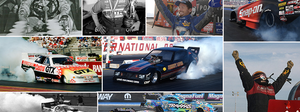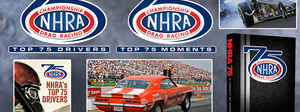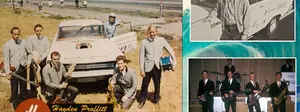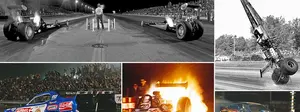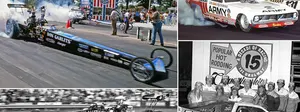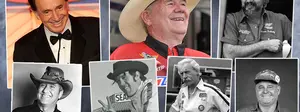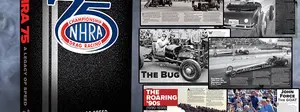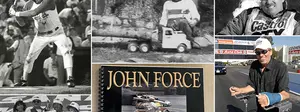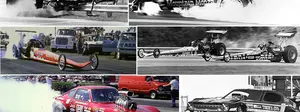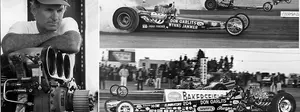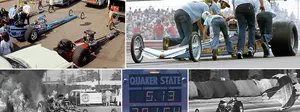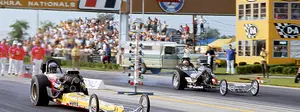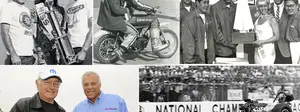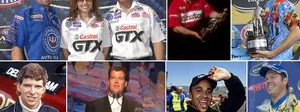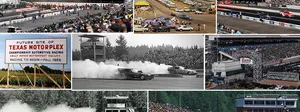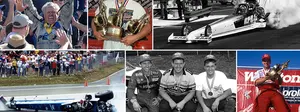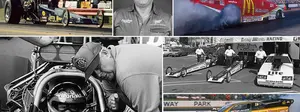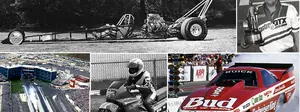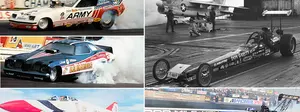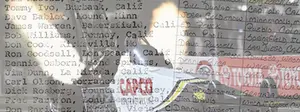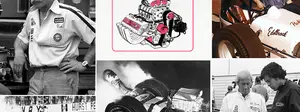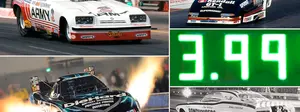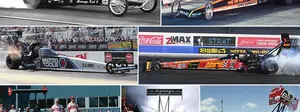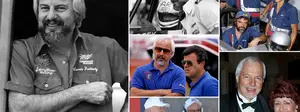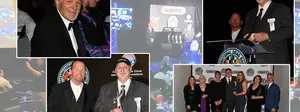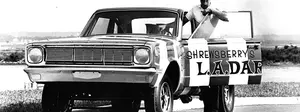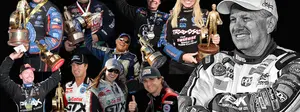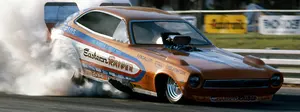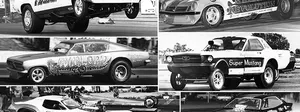A brief history of the NHRA Finals
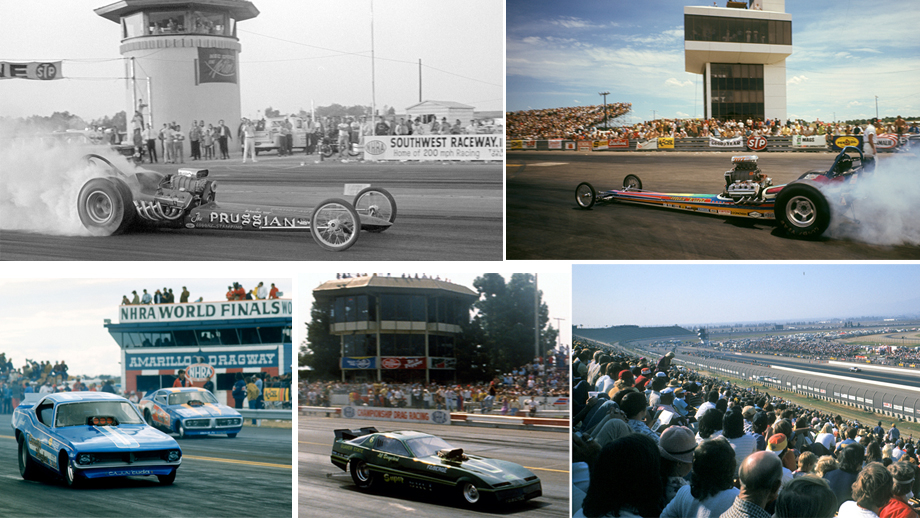
And so we head off to Auto Club Raceway at Pomona this weekend for the 2019 Mello Yello Drag Racing Series season finale. For us here at National Dragster it’s a “home game” – the Pomona track is only about eight miles from NHRA HQ –- but that’s been the way it has been since the Finals came to California in 1974 after previous editions in Oklahoma and Dallas.
The Finals came to Pomona in 1984, making this 35 years that the season has started and ended in Pomona. A few years ago, in celebration of the 50th anniversary of the World Finals, we produced a special book (still available on Amazon), where we tracked the event’s progress through its six venues to its current home in Pomona.
Here’s a quick look back at the history of the Finals.
Tulsa, Okla.: 1965-68

Seeking a place to crown its season champions, NHRA held the first World Finals at Southwest Raceway in Tulsa in 1965. To gain entry to the invitational event, competitors had to outlast opponents during a season-long points battle at divisional and regional events across North America. The rewards awaiting the champions totaled more than $70,000, including six new Ford Mustangs. In front of a packed house of spectators and the NBC Sports television cameras, Maynard Rupp claimed the Top Fuel championship and was joined in the winner’s circle by Jim Minnick (Top Gas), Virgil Cates (Comp), Gene Moody (Street), Joe Smith (Top Stock), and Doug Kahl (Junior Stock).

During its four-year run in Tulsa, the event was host to a number of significant milestones. In 1966, Eddie Schartman, driving Roy Steffy’s S/XS Mercury Comet, became Funny Car’s first world champion when he defeated “Dyno Don” Nicholson. A year later, hometown hero Bennie Osborn won the Top Fuel crown, and Gordon Collett (Top Gas) and popular Chico Breschini (Comp) were among the other big winners. Osborn returned to defend his title in 1968.
READ MORE: Eddie Schartman, NHRA's first Funny Car champ
Dallas: 1969-70

In September 1969, barely a month before the event, NHRA announced that the World Finals would be moved to luxurious and new Dallas Int’l Motor Speedway, which also hosted the Springnationals earlier that year. Considered to be far ahead of its time, the Texas facility proved to be a suitable host for one of the biggest events of the season. The champions crowned during the invitational event included Steve Carbone (Top Fuel), Jack Jones (Top Gas), Jerry Gwynn (Super), Mike Fons (Street), and Ronnie Sox (Super Stock).
READ MORE: The all-too-short life of Dallas Int'l Motor Speedway
In 1970, the event was again held in Dallas and again provided the venue for the crowning of the season champions. However, it was not the final event of the season. That came a month later, in mid-November at the new Ontario Motor Speedway in Southern California. The season champions crowned included Sox, who held off Arlen Vanke for the win in the newly created Pro Stock class, Ben Griffin (Comp), Carroll Caudle (Modified), and Bobby Warren (Stock).
Amarillo, Texas: 1971-73

Following the closure of Dallas Int’l Motor Speedway, the NHRA World Finals remained in Texas, moving slightly westward. The 1971 season also featured a slight format adjustment for the event. Earlier, NHRA had created an East/West conference structure. Divisions 1, 2, and 3 were in the East conference, and the remaining four divisions made up the West conference. The top 16 points earners in each conference automatically qualified to race in Amarillo.

The 1971 event also marked the first time that NHRA used a correction factor for elapsed time because the track sat more than 3,700 feet above sea level. Also noteworthy is the debut of a Youth and Education Day attended by Amarillo High School vocational students, establishing a tradition of a youth-oriented program that continues to this day. The race was highlighted by huge upsets, including Gerry Glenn over a red-lighting “Big Daddy” Don Garlits in a classic front-engine versus rear-engine Top Fuel final.
In 1972, Top Fuel racer Jim Walther and Funny Car driver Larry Fullerton became NHRA world champions by winning the World Finals. Ironically, neither had won a national event before. Hard-luck Clayton Harris was the Top Fuel runner-up, and hard-luck Jake Johnston was the Funny Car runner-up for the second year in a row. Bill “Grumpy” Jenkins, who had dominated Pro Stock all year with his Grumpy’s Toy Vega, ruled again.

The 1973 event, the final race in Amarillo, also marked the last time that the event was used to determine world champions. Jerry Ruth won the Top Fuel title by beating Gary Beck; it was his first national event title. In the Funny Car final, Frank Hall drove Jim Green’s Green Elephant Vega to a win over Bobby Rowe on a holeshot, and in the Pro Stock title round, Wayne Gapp turned in a record-setting performance to stop Jenkins.
Ontario, Calif.: 1974-80

Having already hosted the Supernationals for three years, the magnificent Ontario Motor Speedway seemed a fitting venue for the NHRA World Finals. The move also coincided with a major policy change that would use a season-long points competition to crown the sport’s national champions. Gary Beck, Shirl Greer, and Bob Glidden were the first champions under the new system, taking titles in Top Fuel, Funny Car, and Pro Stock, respectively. Greer won his title in perhaps the most dramatic fashion: The Division 2 racer suffered burns to his hands and face during a fire Saturday but returned to drive in eliminations and score enough points to hold off Don “the Snake” Prudhomme.
READ MORE: Shirl Greer's dramatic 1974 season

The Ontario race produced some of the most impressive performances in NHRA history. The 1975 event is considered by many to be perhaps NHRA’s greatest event following “Big Daddy” Don Garlits’ landmark 5.63, 250.69-mph run in Top Fuel and Prudhomme’s 5.97, the first five-second Funny Car run. Garlits, Prudhomme, and Glidden were the world champions, the first crowned as part of a new title-rights sponsorship with Winston that had been announced earlier in the season.
READ MORE: Don Garlits' 5.63, the record that lasted forever

At the 1978 event, Raymond Beadle returned to the winner’s circle in Funny Car, his first appearance since the 1975 U.S. Nationals, and Glidden retired his Ford Fairmont undefeated with the Pro Stock win. The final Ontario race, in 1980, was also dramatic, with Glidden winning his fifth Pro Stock championship by a narrow margin over rival Lee Shepherd, who failed to make the final for the first time all season. In Top Fuel, Shirley Muldowney sewed up her second world championship en route to her fourth national event win of the year. Muldowney became the first two-time Top Fuel champ with a semifinal victory over Gary Cornwall, then defeated a tire-smoking Frank Bradley in the final.
Shortly after the 1980 event, Ontario Motor Speedway was sold to a real-estate development company, marking the end of one of NHRA’s most beloved facilities.
East Irvine, Calif.: 1981-83

Following the demise of Ontario Motor Speedway, the NHRA World Finals moved to Orange County Int’l Raceway (OCIR) in East Irvine, Calif. A facility that had lobbied for an NHRA national event for more than a decade, popular OCIR provided a perfect location for the event, particularly after track operator Charlie Allen agreed to a number of improvements, including an expanded pit area, increased seating capacity, expanded and improved restroom facilities, improved PA system, and fresh paint. Then NHRA President Dallas Gardner noted, “When the Ontario situation arose, there really was no question about where to go with the World Finals. We feel very fortunate that such a fine facility was available to us and that Charlie Allen was as enthusiastic about the possibilities as we were.”
READ MORE: The rise and fall of Orange County Int'l Raceway

Gary Beck, Jim Dunn, and Lee Shepherd were crowned the Pro champions at the first national event at OCIR. Dunn’s victory over Gary Burgin proved to be his last as a driver. The 1981 event will also be long remembered for NHRA’s last Modified title, which Larry Kopp won after Paul Mercure missed a shift.
With Lee Beard as his crew chief, Jim Bernard won his first and only Top Fuel title at the 1982 World Finals, Tripp Shumake drove Billy Meyer’s “blocker” car to the Funny Car win, and Warren Johnson aced Lee Shepherd to win in Pro Stock.

The OCIR era came to a close following the 1983 event as the track suffered the same fate as Ontario, succumbing to a rise in urban development across Southern California. Shirley Muldowney, John Lombardo, and Johnson captured the final NHRA Wallys at OCIR, although the track later held a memorable Last Drag Race event that proved to be a fitting send-off.
Pomona: 1984-present

The NHRA World Finals again migrated across the Los Angeles basin, to Pomona Raceway, site of the season-opening NHRA Winternationals since 1961.
It didn’t take long for the Pomona Finals to produce its first upset when Sherm Gunn won the only Funny Car title of his career by beating Mark Oswald in the final. “Big Daddy” Don Garlits and Bob Glidden won in Top Fuel and Pro Stock, respectively, and the Pro Stock Motorcycle class also featured a notable upset when unheralded Mark Sauro scored against heavily favored Terry Vance in the final.

The season finale has since produced some of NHRA’s most dramatic moments, chief among them “The Run” in 2006, when Tony Schumacher threw a Hail Mary pass in the Top Fuel final with a 4.42 in the Alan Johnson-tuned U.S. Army dragster that beat Melanie Troxel and set the elapsed time record, which provided the points to overtake Doug Kalitta for the championship.
The battle for the 2012 Top Fuel world championship was captured in similarly dramatic fashion, but this time, Schumacher finished in second place after losing the final on a holeshot to Brandon Bernstein, a result that awarded the title to Antron Brown. That was the same year that Jack Beckman won the Funny Car championship by just two points over Ron Capps, who had previously lost it by just eight points in 2005 to Gary Scelzi. Capps would have his day, though, a few years later.
CLOSEST POINTS FINISHES IN NHRA HISTORY |
|||||
| Year | Class | Champion | Points margin | Second place | |
| 2012 | Funny Car | Jack Beckman | 2 | Ron Capps | |
| 2009 | Top Fuel | Tony Schumacher | 2 | Larry Dixon | |
| 2009 | Pro Stock Motorcycle | Hector Arana Sr. | 2 | Eddie Krawiec | |
| 2016 | Pro Stock | Jason Line | 3 | Greg Anderson | |
| 2010 | Pro Stock Motorcycle | LE Tonglet | 4 | Andrew Hines | |
| 2008 | Pro Stock Motorcycle | Eddie Krawiec | 5 | Chris Rivas | |
| 2007 | Pro Stock Motorcycle | Matt Smith | 6 | Andrew Hines | |
| 2012 | Top Fuel | Antron Brown | 7 | Tony Schumacher | |
| 2017 | Pro Stock | Bo Butner | 7 | Greg Anderson | |

In 2014, the Pro Stock championship battle between Erica Enders and Jason Line came down to a thrilling, climactic final round — only the fourth time that has happened in NHRA history — where, incredibly, both drivers red-lighted. Line left earliest, and Enders left with the historic crown, the first-ever by a woman in the class. The Funny Car title didn’t get quite the far, decided in the semifinals when second-place John Force, who needed to win the race and set the national record, won the round to reach the final but did so without a necessary backup for the record. He got his chance for a little revenge on newly crowned Matt Hagan in the final and appeared to have won the round until his engine let loose, and Hagan steamed by to complete his amazing weekend.

The following year, Del Worsham was the big star of the weekend as the hometown hero not only outlasted season-long points and performance rival Jack Beckman to claim the Mello Yello Funny Car championship with the Kalitta Motorsports DHL Toyota, but he also went on to win the event to score his fourth victory of the six-race Countdown to the Championship playoffs. As has happened throughout the season, the Funny Car national e.t. record traded hands multiple times before Beckman finally secured it — and the valuable 20 points — in round two with a 3.884, cutting Worsham’s lead in half and setting up a winner-take-all semifinal clash that went to Worsham, 3.92 to 4.08.
The 2015 event also marked the end of carbureted engines in Pro Stock — a basic combination that has existed since the class’ inception in 1970 — and with the championship again decided in Enders’ favor at the previous event in Las Vegas, to say that teams wanted the bragging rights for the last race before the class switches to fuel injection in 2016 would be an understatement. The event also marked the end of Allen Johnson’s long primary sponsorship with Mopar, as saluted on the flanks of his Dart at the last two races, and the Tennessee veteran made it a memorable farewell.

Jason Line and Jerry Savoie clinched championships on the final day of the 2016 season. A day earlier, with the completion of qualifying, Ron Capps locked up his long-overdue first world championship in Funny Car, joining teammate Antron Brown, who had clinched the Top Fuel championship two weeks earlier in Las Vegas. Line began the event with a lead of less than a round-win over teammate Greg Anderson but pushed it to more than a round thanks to a stellar qualifying effort. When the two most dominant Pro Stock racers of the season predictably met in the final round, the title already belonged to Line. Savoie earned his first career world championship after he advanced to the semifinals while nearest contenders Eddie Krawiec and Andrew Hines were knocked out in the quarterfinals.

Brittany Force made history in Pomona in 2017, becoming just the second woman to win the NHRA Top Fuel world championship. She locked it up in the second round by defeating Richie Crampton. Steve Torrence, who entered the race with a 20-point lead, lost to Antron Brown one pair ahead of Force, leaving the title n her control, and she seized it and left her legendary father, John, in tears on the starting line, overcome with the emotion.

Last year’s finale was in line with its predecessors as Matt Smith won his third championship by running the fastest speed in Pro Stock Motorcycle history, 201.22 mph. Steve Torrence swept the Countdown to the Championship with his unprecedented sixth straight playoff win, J.R. Todd won his first Funny Car championship, and Comp winner David Rampy became just the fourth racer to earn 100 victories.
With all four championships still on the line entering this year’s event and Top Fuel being a real shootout between Torrence and Brittany Force, we could well be in for another headline-making addition to the history of the Finals.
Phil Burgess can reached at pburgess@nhra.com
Hundreds of more articles like this can be found in the DRAGSTER INSIDER COLUMN ARCHIVE



